Given the rare opportunity to unwind, President Gayle Hutchinson imagines she would come home, say hello to her parrot, grab a few drinks, sit outside with her wife, Linda, and her dogs, and watch the sunset.
The sun is setting on Hutchinson’s career in the California State University system — 33 years to be exact.
But Hutchinson’s story goes far beyond her career in the CSU system. It’s not often a first-generation college student becomes president of a university.
Hutchinson, who during her youth worked at McDonald’s, on a tobacco farm and in a greeting card factory, started as an assistant professor at Chico State.
Growing up her family encountered financial hardships, but she was “born an entrepreneur,” she said.
In an interview with the president earlier this semester, after a firm handshake, we asked the question:
“When you first began your career at Chico State, did you foresee yourself in the position you’re at now?”
Hutchinson confidently and quickly said “Yes.”
Breaking barriers
Hutchinson’s legacy rests in the fact that she is not only the first female president of Chico State, but the first gay president of a CSU.
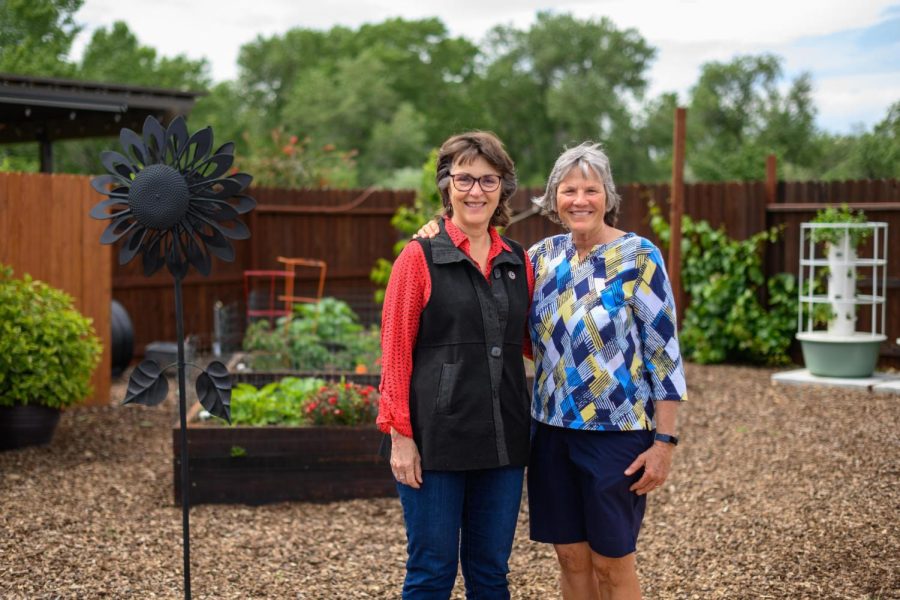
For her, being the first gay president of a CSU is a “big deal.”
Hutchinson came out in grad school. She was raised to believe that being gay “was not a good thing.” She feared that her parents would disown her if they found out.
She went to grad school in Northampton, Massachusetts. There she had a partner whose family was accepting of her sexuality. Hutchinson describes the differences between their families as “this juxtaposition, if you will, and it was really strange.”
When they had class together, Hutchinson told her partner, “Don’t look at me. Don’t sit near me. Sit on the opposite side of the class. Don’t tell anyone.”
She recalled a time a grad student colleague came up to her and said something nice about her and her partner — because everyone knew.
“I just remember feeling like something gripped my heart. It’s like, ‘oh, my god, she knows. What’s going to happen?’ And really being stressed about it,” she said.
During this time she went to her first gay pride march. She saw teachers march with paper bags over their heads, because they were afraid of losing their jobs if they were recognized for being there.
“We joined the fight. We went from being on the sideline to marching with them, but I also remember the busloads of people who hate that lifestyle . . . bussing in to be at the parade and spewing just nothing but hate.”
Hutchinson found that Northampton, Massachusetts, was very liberal. Coming to Chico, “It was like taking a step back in time. I didn’t know how to find my community,” she said.
While working on a Saturday in Chico, which was not uncommon for her, she saw a poster for a women’s concert at the local Unitarian Church.
“So I went and sure enough, there they [members of the LGBTQ community] were,” she said.
Still, getting to know people was difficult. Hutchinson said she never denied being gay to anyone. Students admired her authenticity and looked to her for guidance regarding their sexualities, but it took time before she felt comfortable to openly discuss her own.
Once she became the kinesiology department chair, she was fully out and often brought her wife to campus events, which she was very proud of.
Duties of the president
After serving as chair of the kinesiology department, she went on to become dean of the College of Behavioral and Social Sciences. From there she landed a job as the provost of California State University Channel Islands, before becoming the president of Chico State in 2016.
Hutchinson said one of the roles of the president is to be on the front line of fundraising. During the past seven years of her presidency, she helped lead a capital campaign that brought the university’s capital to $106.6 million.
Outside of fundraising, she is in charge of everything: setting a strategic plan for the institution, lobbying in Sacramento and financial stewardship.
Controversies
Hutchinson was criticized, including by some campus faculty, after she received a raise of 7% in 2022, which, along with two equity adjustments, brought her salary from $319,314 to $413,416.
This pay bump of nearly $100,000 will follow her into retirement by increasing her CalPers retirement income by more than $10,000 per year.
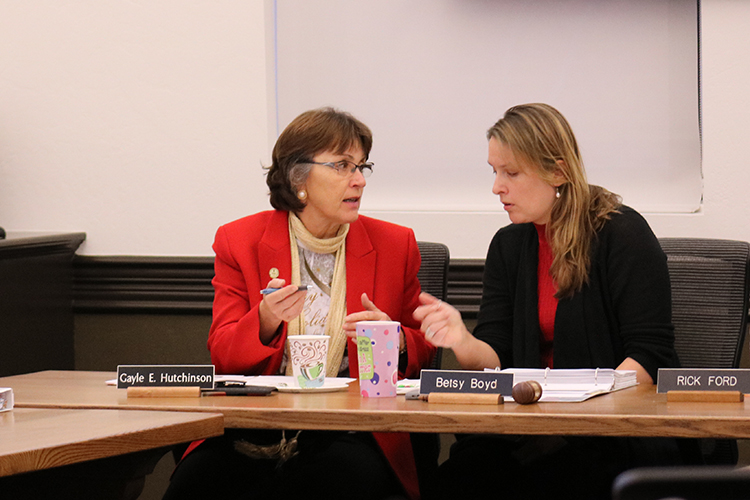
The reason she got the raise had to do with equity and the many duties that come with the position of president, Hutchinson said.
“When you look at that mantle of responsibility and you look at what people in comparable positions are paid nationwide, the presidents of the CSU are underpaid,” Hutchinson said.
Though the responsibilities are abundant, Hutchinson said her administration always does what it can to make the best decisions for Chico State.
“At the end of the day there is one decider on this campus, and it is the president. And the president, then with that decision, also has to take [the] consequences that come with it.”
She compared the campus community of nearly 13,000 students to a small town, a small town she is responsible for.
“My responsibilities are not only to the students, the staff, the faculty, but the operations including liabilities and safety,” she said.
On top of the numerous day-to-day responsibilities, Hutchinson dealt with nearly constant crises in her seven years as president, including 2017’s Oroville Dam spillway failure, the Camp Fire of 2018 and the COVID-19 pandemic.
Students were sent home during the 2020 spring semester when the COVID-19 lockdowns began. One regret she has was bringing a limited number of students back in fall 2020.
“This time around I wouldn’t have brought them [back to campus] at all. But look at how much more we know about COVID and the spread of the contagion,” she said.
When the university finally brought students back in fall 2021, she said this was “the right decision,” and that she stands by it.
One of the most recent crises Chico State has encountered is the ongoing conflict with biology professor David Stachura, who was the subject of an article published in Dec. 2022, detailing alleged threats to co-workers.
The university received scrutiny for how they handled the situation. Consequently Stachura received a temporary suspension and was later banned from campus. The university eventually went on to work with affected parties to receive a temporary restraining order against him.
We asked Hutchinson if the scrutiny from the media regarding personnel issues influenced her decision to retire.
“Gosh no,” she said. “Wasn’t even a thought.”
After returning from COVID-19, she had spoken to her wife about retiring and had informed the chancellor of her decision in the summer of 2022, she said.
“I feel like the university at that moment in time was in a good spot, yeah, and I still think we’re in a really good spot,” Hutchinson said. “And so I thought ‘okay, my job, honestly, is to leave Chico State in a better place than I found her,’ and I believe that to be true.”
Hutchinson said she didn’t want to make an abrupt exit and wanted to give the Board of Trustees enough time to find a permanent replacement, as well as herself the chance to get the school year going.
“I didn’t want to make the announcement right away, because I needed to get the semester up and running. I did not want to be a lame duck,” she said.
Other controversies
The pay and personnel issues are the most recent controversies during Hutchinson’s presidency, but there have been a number of criticisms pointed at her for a range of decisions.
She was roundly criticized for allowing classes to continue after a student suicide on campus in the spring of 2018 and after the murder of a homeless woman outside Kendall Hall in late October 2018, as well as for not closing campus sooner on Nov. 8, 2018, the day the Camp Fire consumed the town of Paradise and roared toward the Chico city limits.
In 2019, Hutchinson actively opposed a proposed homeless shelter being located near campus, citing concern for student safety. In 2020, Hutchinson received criticism from faculty and staff after launching a search for the new University Police chief without addressing underlying local and societal concerns. Hutchinson canceled the search and created a presidential task force to study the campus’ needs and the police department’s future.
Legacy and saying goodbye
Time and time again the campus community has endured, and throughout all the challenges her administration has faced, so has Hutchinson.
“I think being president is a lifestyle, but it’s an endurance run really, and so you have to really learn to pace yourself,” she said.
All races, whether marathons or sprints, come to an end. As Hutchinson finishes her last mile as president, we asked her if the idea of retirement has really set in for her.
“I think … well, maybe it’s starting to hit me now that you asked me,” she said with glossy eyes.
However, she said it won’t really hit her until graduation, when she sees her last group of students walk the stage, something she acknowledged is always a great feeling, but will be more bittersweet this time around.
“It’s been a great run though. It’s been a great run, but I don’t want to be like Tom Brady,” she said with a smile.
Hutchinson said it will be history that determines the details of her legacy.
Although, she did say a big part of her legacy has been “really pushing this institution to be more equitable, diverse and inclusive.”
She knows that “there’s always work to be done” and that “not enough gets accomplished in the time you have,” but also said “everything’s a work in progress.”
Since the beginning of her career, her personal mission has always been to provide students with the support they need to succeed.
“I’m a teacher at heart.”
In retirement, Hutchinson looks forward to becoming a better musician. She plays piano, saxophone and ukulele. She is also an avid golfer. Her golf handicap is 18, though her wife Linda’s handicap is nine.
For that sunset drink with her wife, parrot and dogs — though she said she doesn’t drink much — she would likely pick a red wine, sometimes a stout beer or a Mike’s Hard Lemonade, which she enjoys on a hot day.
A final piece of advice Hutchinson has for students is to take risks, be willing to learn and be curious. She said it’s important to not be afraid of failure.
Hutchinson said her time as president has not been easy, but it has been a great opportunity.
“It is the hardest, most challenging, most awesome position I’ve ever held.”
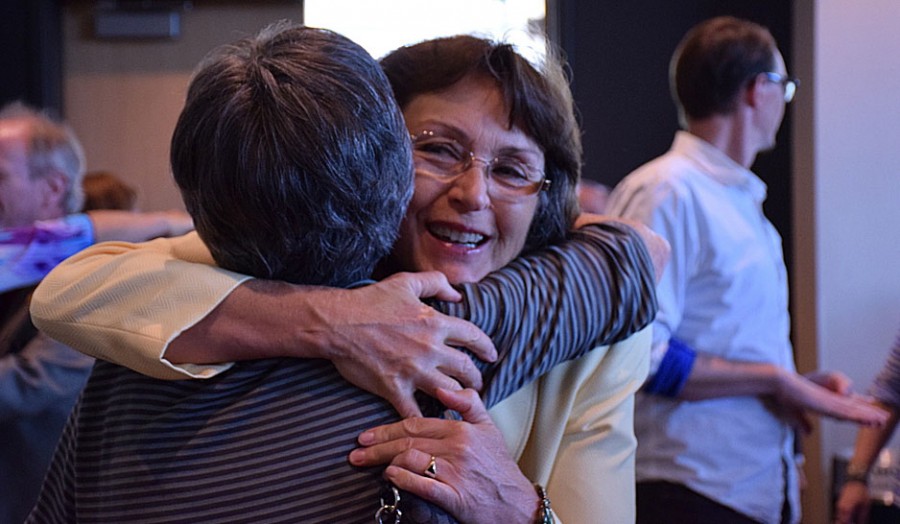
Molly Myers and Noah Herbst can be reached at orionmanagingeditor@gmail.com








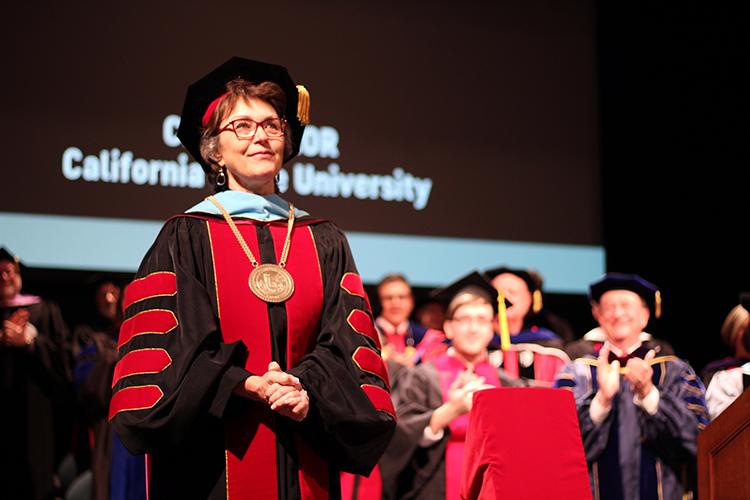
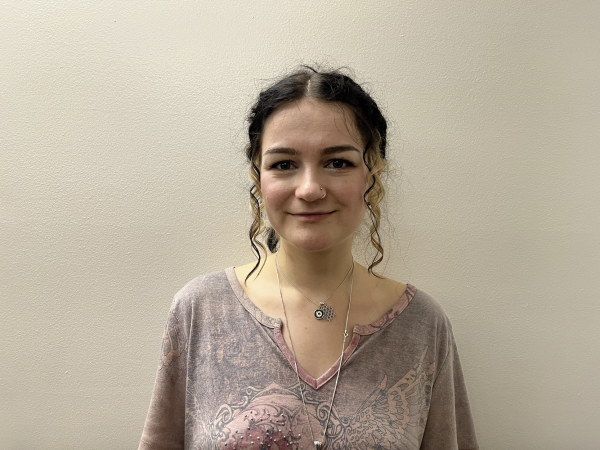
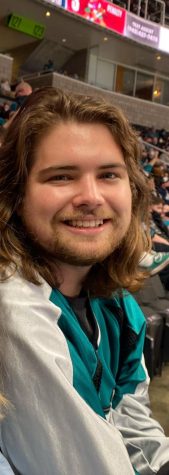
Kirstie Steiner // May 3, 2023 at 10:19 am
Actually, her 2022 pay increase was 30%, not 7%.